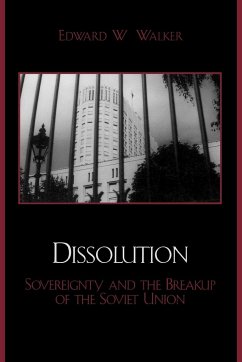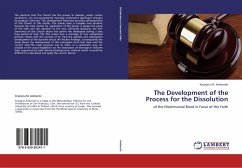In December 1991, the Soviet Union passed into history as a legal entity, breaking apart into 15 successor states. This clear and convincing book explains why. It emphasizes the critical role of Soviet ethno-federalism, as well as the normative claims and legitimizing myths of Soviet nationality policy. Institutional constraints and legitimizing myths, Walker argues, empowered the anti-union opposition even in republics where it had limited popular support. He also shows how they helped bring about an outcome_the full dissolution of the USSR_that surprisingly few desired.
Hinweis: Dieser Artikel kann nur an eine deutsche Lieferadresse ausgeliefert werden.
Hinweis: Dieser Artikel kann nur an eine deutsche Lieferadresse ausgeliefert werden.








